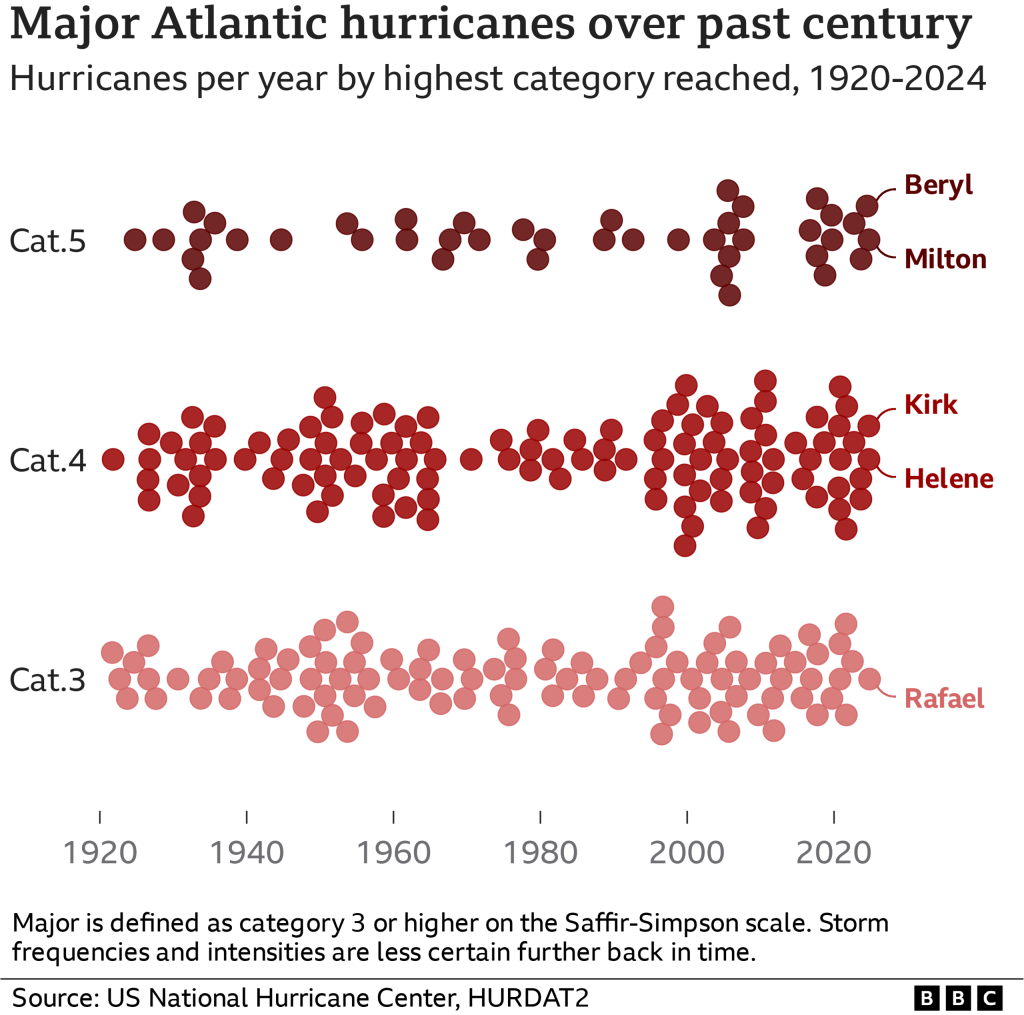THE BBC’s Executive Complaints Unit, ECU, is unfit for purpose. OK, we have all known that for years, but it is still worth reiterating!
The problem is that the BBC marks its own homework because the ECU is part of the organisation. Unsurprising, then, that virtually every complaint fired at the BBC is rejected, regardless of the evidence.
My latest complaint concerning a report published at the end of last year, which claimed that Atlantic hurricanes are getting more powerful because of global warming, sums this up perfectly.
For years the BBC have got away with such claims, even though the acknowledged experts in the field say there are no such trends in the data, which goes back to the late 1800s. The US Hurricane Research Division, part of the National Oceanic & Atmospheric Administration (NOAA), the US Federal Agency for all things climate, stated the following in their latest hurricane review last year:

https://www.gfdl.noaa.gov/global-warming-and-hurricanes
It can’t get any clearer than that.
As with previous complaints, the BBC studiously ignored what the real experts said, instead trying to justify their fake claims on the basis of computer modelling and meaningless short-term trends.
Clearly the BBC think they know better than hurricane experts!
What made the article particularly dishonest was the inclusion of a chart purportedly showing a big increase since 1920 in the number of Category 3, 4 and 5 hurricanes, the strongest ones, which experts refer to as ‘major hurricanes’:

Observation technology has changed out of all recognition since the 1920s. Nowadays we can continuously not only observe but also measure hurricanes via satellites; this has been possible only since the 1980s.
We also have the capability to fly hurricane-hunter aircraft into the centre of the strongest hurricanes and record wind speeds using instruments called dropsondes. When these aircraft were introduced in the 1940s, they were not robust enough to fly into the middle of major hurricanes, where the strongest winds are. Before the 1940s, of course, there were no hurricane-hunters at all.
Consequently in the early days many hurricanes were not even spotted in mid-ocean, unless a ship happened to be passing by. If one did, it certainly would stay as far away as possible! Wind speeds were frequently underestimated as well, because of the inability to take measurements at the precise time and place when wind speeds peaked.
A 2012 peer-reviewed study by the US Hurricane Research Division established that out of ten recent Cat 5 Atlantic hurricanes, only two would have been so classified using 1940s technology. (Both of these were Cat 5 at landfall). It says: ‘Observations of the peak intensity in strong hurricanes were much less common during the late 1940s/early 1950s when compared with recent years because the ability to measure the central pressure and peak winds in major hurricanes was very limited during the late 1940s/early 1950s.’
NOAA of course are fully aware of this and insist that you should not compare pre-satellite data with modern-day – something the BBC deliberately did. If a company misrepresented data in this way, they would be accused of fraud.
Nevertheless the ECU rejected my complaint that the chart was grossly misleading. Their excuse? The footnote to the chart saying ‘storm frequencies and intensities are less certain further back in time’!
Sorry, BBC, but this is simply not acceptable. You do not publish information which you must, or should, know is wrong. The fact that they did, and then refused to issue a correction, is clear proof that the chart was designed for propaganda.











